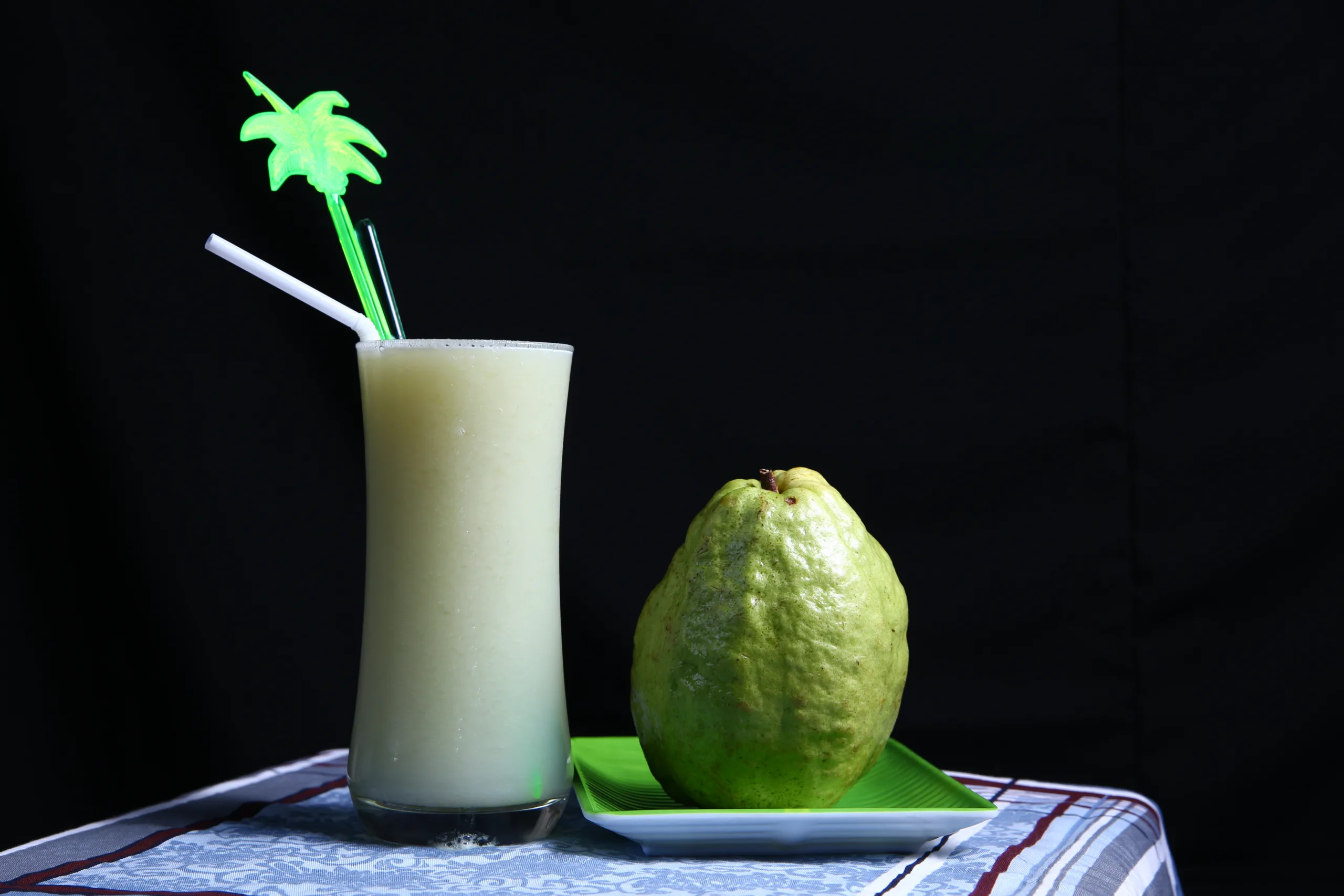Do you have digestive health issues and are looking for a delicious and nutritious low FODMAP snack? Guava, with its sweet and juicy taste, may be a great alternative to consider. But is guava low FODMAP?
In this article, we will discuss the FODMAP composition of guava and how it can be enjoyed as part of a healthy and balanced low FODMAP diet. We will also look at some tips on how to incorporate guava into your diet. So if you are looking for more information about guava and its low FODMAP status, keep reading!
Guava is a tropical fruit known for its sweet taste and health benefits. It belongs to the myrtle family and is native to Mexico, Central America, and northern South America.
Is Guava Low FODMAP?
Guava is a sweet and tangy tropical fruit that is popular in many parts of the world. It has a unique flavor and is packed with essential nutrients, making it an excellent addition to your diet. However, if you are following a low FODMAP diet, you may be wondering if guava is something you can enjoy. The answer is yes – guava is generally considered to be low FODMAP and can be enjoyed in moderation by those on the diet.
Guava contains only small amounts of the short-chain carbohydrates known as FODMAPs, which are thought to be responsible for triggering digestive symptoms in those with irritable bowel syndrome (IBS). While it does contain some fructose, this is balanced out by its fiber content so that it falls within the accepted levels for a low FODMAP food.
In addition to being low in FODMAPs, guava also offers numerous health benefits. It’s an excellent source of vitamin C, which helps boost immunity and keep your skin healthy. It’s also rich in antioxidants, which can help protect against oxidative damage caused by free radicals. Plus, it contains small amounts of various minerals such as potassium and magnesium, which help support healthy bones and muscles.
Overall, guava can be a great addition to your low FODMAP diet as long as you keep portion sizes moderate. Enjoy it fresh or add it to smoothies or other dishes for added flavor and nutrition!
Health Benefits of Eating Low FODMAP Diet
Eating a low FODMAP diet is beneficial for people who suffer from digestive issues such as irritable bowel syndrome (IBS). This diet can provide relief from abdominal pain, bloating, and constipation. It involves avoiding certain carbohydrates that are difficult to digest, including fermentable oligosaccharides, disaccharides, monosaccharides, and polyols. By eliminating these foods from the diet, individuals can reduce their symptoms and improve their digestion.
A low FODMAP diet has been shown to reduce inflammation in the gut. This is important for those with IBS because inflammation can worsen their symptoms. Additionally, avoiding these particular carbohydrates may help individuals absorb more nutrients from their food. As a result, they may experience an increase in energy levels and improved overall health.
Click here to preview your posts with PRO themes ››
Eating a low FODMAP diet can also help to reduce symptoms of other digestive disorders such as small intestinal bacterial overgrowth (SIBO) and Crohn’s disease. By avoiding certain carbohydrates that are difficult to digest, individuals with these disorders can benefit from reduced symptoms such as bloating and abdominal pain.
In addition to the digestive benefits, there are other potential health benefits of eating a low FODMAP diet. Studies have shown that following this type of diet may help to reduce cholesterol levels and improve blood sugar control in people with diabetes. Furthermore, it may also help individuals lose weight by reducing caloric intake without sacrificing nutrient-dense foods.
Overall, eating a low FODMAP diet can provide a variety of health benefits for those suffering from digestive issues such as IBS or SIBO. It can help reduce inflammation in the gut and improve absorption of nutrients from food. It may also reduce cholesterol levels and improve blood sugar control in people with diabetes. Finally, it may also lead to weight loss by reducing caloric intake without sacrificing nutrient-dense foods.
What are FODMAPs?
FODMAPs are a group of short chain carbohydrates and sugar alcohols, which can be difficult for some people to digest. They are found in a wide range of foods, including wheat, rye, garlic, onions, apples, pears and dairy products. FODMAPs can be present in large quantities in some foods and can cause digestive discomfort or other symptoms in those who have difficulty digesting them. The acronym stands for Fermentable Oligosaccharides, Disaccharides, Monosaccharides And Polyols. These are all types of carbohydrates that can be poorly absorbed by the small intestine which can lead to the production of gas and bloating. Many people find that reducing their intake of FODMAPs helps to alleviate their symptoms and improve their quality of life.
FODMAP intolerances or sensitivities vary from person to person and it is important to work with a healthcare practitioner or dietitian to identify which particular FODMAPs are causing your symptoms. By avoiding these specific triggers you may be able to reduce your symptoms significantly with minimal dietary changes.
How Can a Low FODMAP Diet Help with IBS Symptoms?
IBS, or Irritable Bowel Syndrome, is a common disorder that can cause symptoms such as abdominal pain, bloating, and changes in bowel habits. There is no cure for IBS, but certain dietary modifications may help to reduce symptoms. One type of diet that has been found to be beneficial for those with IBS is the Low FODMAP Diet.
FODMAP stands for Fermentable Oligosaccharides, Disaccharides, Monosaccharides and Polyols. These are types of carbohydrates that are poorly absorbed in the small intestine and can cause gas, bloating and other digestive issues. The Low FODMAP Diet involves cutting out foods high in these carbohydrates and replacing them with lower FODMAP alternatives.
The goal of the Low FODMAP Diet is to reduce the amount of irritants in your diet that can trigger IBS symptoms. By avoiding high-FODMAP foods such as wheat, garlic and onions, you can reduce gas production, bloating and other uncomfortable side effects associated with IBS. In addition to reducing FODMAPs in your diet, it is also recommended to increase dietary fiber intake from fruits and vegetables as well as probiotic-rich foods such as yogurt and kefir to help manage symptoms.
Click here to preview your posts with PRO themes ››
It’s important to note that the Low FODMAP Diet should only be followed under the guidance of a qualified healthcare professional. They will be able to provide personalized advice on which foods you should avoid or limit in order to reduce your IBS symptoms. Additionally, it’s essential to reintroduce any eliminated foods back into your diet slowly over time so that you can identify which ones may be triggering your symptoms.
Overall, following a Low FODMAP Diet can help those with IBS manage their symptoms by reducing irritants in their diet and introducing more beneficial alternatives such as high-fiber fruits and vegetables as well as probiotics-rich foods like yogurt and kefir. However it’s important to do so under the guidance of a qualified healthcare professional who will be able to provide personalized advice on which foods are best for you depending on your individual needs.

Does Eating Guava Cause IBS Symptoms?
It is a common question among those suffering from irritable bowel syndrome (IBS) whether eating guava can cause IBS symptoms. While there are no clear-cut answers as to whether guava can directly cause IBS symptoms, there is evidence to suggest that it may worsen existing symptoms. Guava is high in fructose, a type of sugar that has been linked to digestive issues, including bloating and abdominal discomfort. Additionally, guava contains a type of fiber called pectin which can ferment in the gut and produce gas, leading to further gastrointestinal distress.
While eating guava may not directly cause IBS symptoms, it is important to be aware of how it may affect your body. It is always best to consult with your doctor or healthcare provider before adding any new foods to your diet if you have preexisting digestive issues such as IBS. Your doctor can help determine if guava may be an appropriate choice for you and provide personalized dietary advice accordingly.
For those who have already been diagnosed with IBS, it is important to listen to your body when introducing new foods. If eating guava worsens existing symptoms or triggers an attack, then it should be avoided. It’s also a good idea to keep track of what you eat and drink and make notes about the effects on your body over time so that you can identify any potential triggers. This will allow you to customize your diet accordingly and minimize flare-ups or attacks associated with your condition.
Types of Guava
There are many varieties of guavas available around the world, each with unique characteristics and flavors. The most common types of guavas include:
Apple Guavas
Apple guavas are round in shape and have a sweet taste that resembles an apple. They have a thin skin and soft flesh, making them easy to eat raw or use in recipes. Apple guavas can also be used to make jams, jellies, and other preserves.
Click here to preview your posts with PRO themes ››
Strawberry Guavas
Strawberry guavas are oval-shaped with a tart flavor similar to strawberries. They have a thin skin and crunchy texture that makes them great for snacking on raw or adding to salads and other dishes. Strawberry guavas can also be used in juices and smoothies for a sweet-tart flavor.
Lemon Guavas
Lemon guavas are round in shape and have a tart taste reminiscent of lemons. They have a thick skin that must be peeled before eating, but their juicy flesh makes them ideal for making jams, jellies, sauces, and other preserves. Lemon guavas can also be added to cakes, pies, and other desserts for a unique flavor.
Pineapple Guavas
Pineapple guavas are elongated in shape with a sweet-tart flavor similar to pineapples. They have a thick skin that must be peeled before eating, but their juicy flesh makes them great for snacking on raw or adding to salads and other dishes. Pineapple guava juice is especially popular as it has many health benefits including promoting weight loss and aiding digestion.
Are There Other Foods with Similar Nutritional Value to Guava?
Guava is a nutrient-dense fruit packed with vitamins, minerals, and antioxidants. It’s also an excellent source of dietary fiber and contains a variety of essential nutrients such as vitamins A and C, potassium, magnesium, calcium, and iron. While guava is an excellent source of nutrition, there are other foods that contain similar nutritional values.
Fruits like kiwi, mangoes, papayas, oranges, and pineapples are all rich in vitamins A and C as well as other essential nutrients. All of these fruits provide dietary fiber, making them great choices for those looking to maintain a healthy diet.
In addition to fruits, vegetables such as sweet potatoes are another great option for those looking for similar nutritional value to guava. Sweet potatoes are loaded with vitamin A and C as well as dietary fiber. They also contain potassium and magnesium which help to regulate blood pressure levels.
Legumes such as lentils and black beans are another great source of vitamins A and C along with other essential nutrients like potassium and magnesium. They provide a high amount of protein which can aid in weight loss or weight maintenance efforts.
Nuts like almonds contain high amounts of vitamin E along with other essential minerals such as copper and manganese. Almonds provide protein along with healthy fats that can help reduce cholesterol levels in the body. Walnuts are also rich in omega-3 fatty acids which can help reduce inflammation throughout the body.
These are just some examples of foods that contain similar nutritional values to guava but there are plenty more out there that can provide the same health benefits. Eating a variety of nutrient-dense foods is key for maintaining a healthy diet so it’s important to explore different food options when looking for nutrition-packed foods.

Conclusion
Guava is a delicious tropical fruit that can be enjoyed by most people with little to no adverse effects. It is low FODMAP and can be included in a balanced diet for those following the low-FODMAP lifestyle. Guava has many health benefits, including providing antioxidants, aiding digestion, and boosting immunity. For those looking to incorporate it into their diet, guava can be eaten fresh or added to recipes for smoothies, sauces, and jams.
Overall, guava is a low-FODMAP fruit that offers numerous health benefits for those following the low-FODMAP lifestyle. With its sweet taste and wide variety of culinary uses, guava is an excellent addition to any healthy diet.

